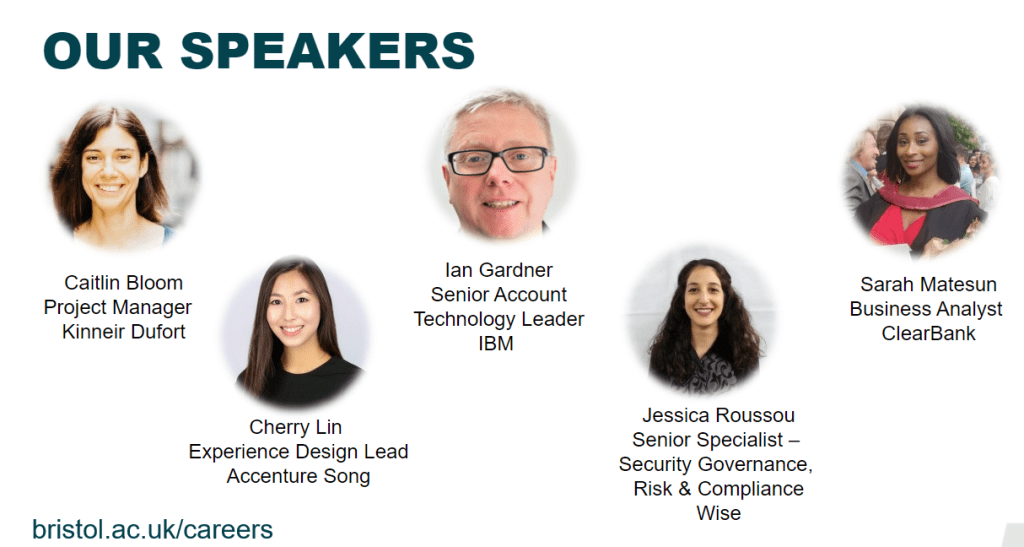A University of Bristol graduate talks about their experience of IT consultancy:

It’s a fact that Computer Science students in general enjoy excellent job prospects after graduating, with University of Bristol graduates being particularly sought after in the industry. All modern businesses require staff who understand how to fully exploit technology. In fact, many businesses will pay a handsome sum to anyone who can prove that they have the skills to unlock potential in their organisation using technology. So why is it that so many Computer Science students choose to apply for ‘safe’ graduate jobs (a.k.a. coding and development) instead of exploring all the different opportunities out there?
I graduated from the University of Bristol seven years ago. Unlike many of my peers, I was not looking forward to the prospect of sitting in a dark room cutting code all day. Instead, I opted for a career in IT consultancy. Consultancy firms essentially get paid by other organisations to take on their most difficult projects as they have the expertise to resource and deliver the most challenging IT programmes. As a consultant working for one of these firms, I am kept constantly on my toes. Engagements tend to be short, meaning the next challenge is always just around the corner, and I rarely wake up knowing what my day is going to be like or where in the country I am going to be working tomorrow.
After graduating and accepting a junior role in a large consultancy firm, I spent nearly four years as a consultant analyst working for the British intelligence services. Although the work I did is classified, I can say that working on the most complex projects these organisations had was both challenging and rewarding. More recently I have been able to adapt my skills to work in the private sector, where I have helped around forty different companies across a variety of sectors. I mention this to illustrate the sheer diversity of jobs out there for Computer Science graduates.
The one thing I have learnt in this time is that there is a desperate lack of graduates applying for the more niche, highly skilled technical roles that companies need, and an overwhelming abundance of graduate coders. I believe this is purely down to Computer Science graduates undervaluing their skill sets and focussing on what they believe they can do best – coding. However, the harsh reality is that coding is often done better, faster and more cheaply by teams of offshore developers. Outsourcing has changed the landscape of jobs available to Computer Science graduates and it’s time to adapt!
UoB Graduate
The University of Bristol Careers Service adds:
Our ‘My degree…where next’ pages offer an introduction to the many different options available to you with a Computer Science degree. It is useful to consider the destinations of previous Computer Science graduates, and read other case studies.




